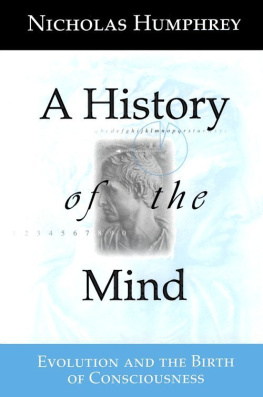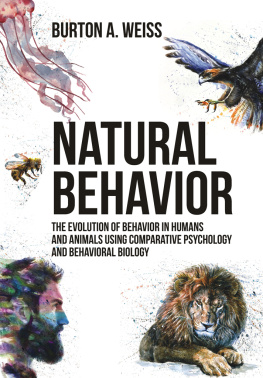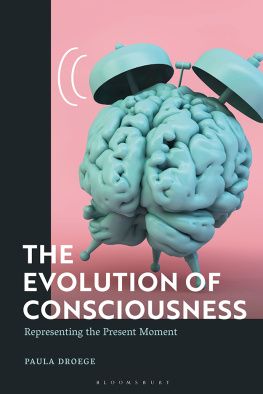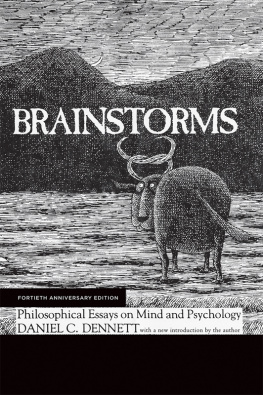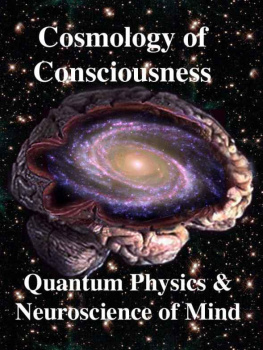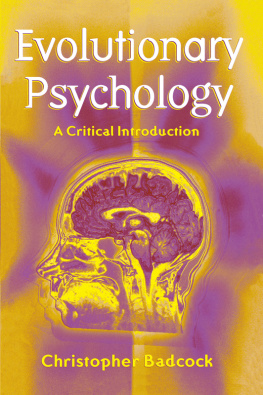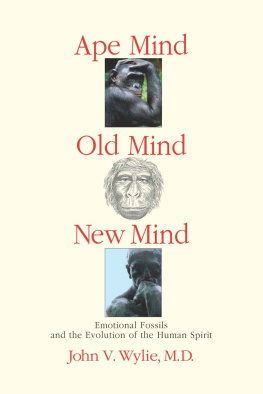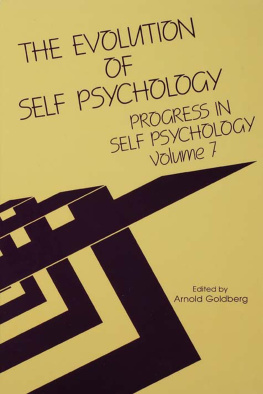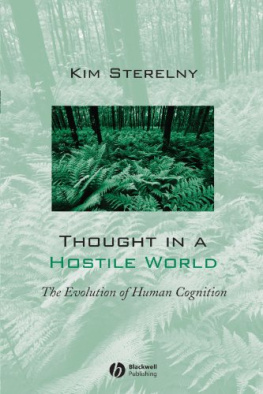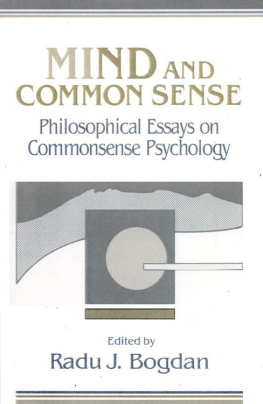Nicholas Humphrey, School Professor at the London School of Economics and Professor of Psychology at the New School for Social Research, New York, is a theoretical psychologist, internationally known for his work on the evolution of human intelligence and consciousness. His books include Consciousness Regained, The Inner Eye, A History of the Mind, and Leaps of Faith. He has been the recipient of several honours, including the Martin Luther King Memorial Prize and the British Psychological Society's book award.
NICHOLAS HUMPHREY





For Ada and Samuel
This is a volume of essays, lectures, journal entries, newspaper articles that I have written in response to opportunity, when something happened that set me thinking on new lines-a surprise turn in my life, a serendipitous discovery, a left-field thought, a provocation or an invitation that could not be refused. The themes are various and the lines do not all converge. Still, these chapters do have this in common: they all concern the uneasy relation between minds and bodies, and they all take issue with received ideas.
In 1983 Oxford University Press published a previous volume of my essays, under the title Consciousness Regained: Chapters in the Development of Mind. I wrote in the Preface: `The theme that runs through this collection is a concern with why human beings are as they are ... The answers that most interest me are historical and evolutionary. Human beings are as they are because their history has been (so we may guess) as it has been.'
Twenty years-and four hooks-later, my interests are still centred in evolutionary psychology: a field which had yet to be named, but which has emerged as the most fertile field of all psychology. I have continued to be fascinated by the perennial issues: consciousness, justice, social understanding, spirituality. I hope I have better answers to some of the philosophical issues that puzzled me then. Some political and social problems have disappeared from view, others remain as pressing as ever, new ones have emerged.
My grandfather, A. V. Hill, in the Preface to his own collected writings (The Ethical Dilemma of Science, 1960), quoted Samuel Johnson: `Read over your compositions and where ever you meet with a passage which you think is particularly fine, strike it out.' I cannot claim to have followed this advice to the letter. I am happy to be the author of most of what is in here (and, for those parts for which I am not, I can still offer good excuses). But I have taken the chance to strike out certain passages that I now reckon redundant, outdated, or wrong.
My constant companion in this work has been my wife, Ayla. My constant distraction has been the two rascals to whom this book is dedicated, Ada and Samuel. Daniel Dennett at Tufts University, Arlen Mack and Judy Friedlander at the New School, and Max Steuer at the LSE have been good friends and critics at every stage. Shelley Cox, of Oxford University Press, and Angela Blackburn have been editors beyond compare.
SELVES
FEELINGS
DISCOVERIES
PRETENCES
SEDUCTIONS
`How often have I said to you,' Sherlock Holmes observed to Dr Watson, `that when you have eliminated the impossible, whatever remains, however improbable, must be the truth?" And how often do we need to be reminded that this is a maxim that is quite generally ignored by human beings?
Here is an immediate test to prove the point. Figure 1 shows a photograph of a strange object, created some years ago in the laboratory of Professor Richard Gregory.2 What do you see this as being a picture of? What explanation does your mind construct for the data arriving at your eyes?

Fig. 1
You see it, presumably, as a picture of the so-called 'impossible triangle': that is, as a picture of a solid triangular object whose parts work perfectly in isolation from one another but whose whole refuses to add up-an object that could not possibly exist in ordinary three-dimensional space.
Yet the fact is that the object in the picture does exist in ordinary space. The picture is based on an unretouched photograph of a real object, taken from life, with no kind of optical trickery involved. Indeed, if you were to have been positioned where the camera was at the moment the shutter clicked, you would have seen the real object exactly as you are seeing it on the page.
What, then, should he your attitude to this apparent paradox? Should you perhaps (with an open mind, trusting your personal experience) believe what you unquestionably see, accept that what you always thought could not exist actually does exist, and abandon your long-standing assumptions about the structure of the `normal' world? Or, taking heed of Holmes's dictum, would you do better instead to make a principled stand against impossibility and go in search of the improbable?
The answer, of course, is that you should do the second. For the fact is that Gregory, far from creating some kind of paranormal object that defies the rules of 3-D space, has merely created a perfectly normal object that defies the rules of human expectation. The true shape of Gregory's `improbable triangle' is revealed from another camera position in Figure 2.

Fig. 2
It is, as it turns out, a most unusual object (there may be only a couple of such objects in existence in the universe). And it has been photographed for Figure 1 from a most unusual point of view (to get this first picture, the camera has had to be placed at the one-and-only position from which the object looks like this). But there it is. And now that you have seen the true solution, presumably you will no longer be taken in.
If only it were so! You look at Figure 2. And now you look back at Figure 1. What do you see this time around? Almost certainly, you still see exactly what you saw before: the impossibility rather than the improbability! Even when prompted in the right direction, you happily, almost casually, continue to `make sense' of the data in a nonsensical way. Your mind, it seems, cannot help choosing the attractively simple-even if mad-interpretation over the unattractively complicatedeven if sane-one. Logic and common sense are being made to play second fiddle to a perceptual ideal of wholeness and completion.


